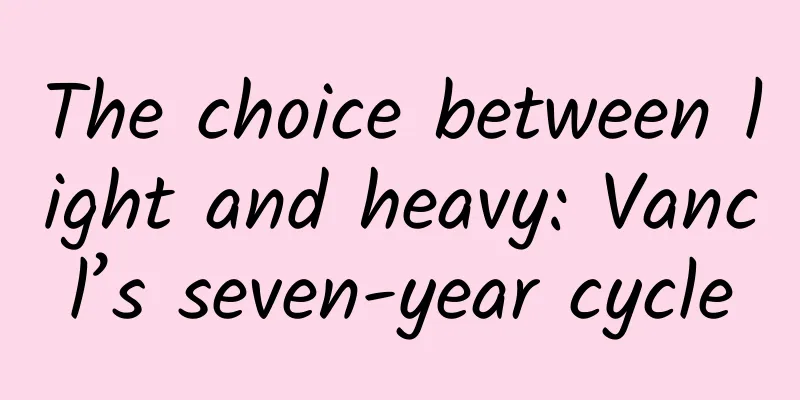How did “sheep of sheep” make you “addicted”?

|
Recently, a stacking elimination game called "Sheep!", which claims to have a "pass rate of less than 0.1%", has become popular on the Internet. Starting from the "1+1" level 1, the "extremely difficult" 2nd level made players "unable to stop" and they all "fought to the death" with the game, thus "screening out" the "stubborn donkeys" among the players, and the game was therefore nicknamed "Donkey, Donkey". Netizens complained on various platforms, and there was even a "big wronged sheep" who challenged 4511 times a day. Different from traditional games that focus on experience, "Sheep of a Sheep" makes players jump back and forth between "want to play", "high blood pressure", "self-doubt", and "still want to play". In the end, driven by the complex emotion of "the angrier I get, the more I play", they repeatedly challenge, watch ads, and complain on Weibo. The purpose of playing games is to have fun, so why can people be so addicted to the game that can’t have fun? Is it really true that “the harder it is, the more addictive it is”? Some players attributed the difficulty of the game to the difficulty of the "second level". However, some senior players and industry insiders analyzed that "Sheep Go Sheep" is not complicated enough to make people think, and the cards that appear are more like "pure randomness". Compared with the "strategies" and "skills" shared online, luck and probability are the core elements of passing the level. In other words, if you pass it, it is not because you are good, but because the system allows you to pass it. Of course, it is really amazing if it passes, and it is worth posting ten times on your Moments. As a "probability game", the so-called "difficulty" is only one part of the game experience. For general games, the selling points are often emotional communication, positive feedback mechanisms, etc. Even if you lose more than you win, the "hard-earned" victory will strongly stimulate a sense of satisfaction. However, as strategies to please players become increasingly difficult to work, a trend of "force feeding" has emerged in many fields. Various small games with thin content but particularly good at "killing time" continue to appear, changing from "people playing games" to "games playing people", constantly testing the players' upper limit of "abuse". Under this mechanism, the pleasure of feeding is not the purpose of the game. Players must be tempted to "play another game" and their own advertisements and equipment must be "stuffed" in. Therefore, the reason why you can’t give up “The Sheep” is not because we have no self-control, but because the product manager has already predicted your prediction and set every point that makes you unable to stop. How does the “addiction mechanism” make players get deeper and deeper into it? As far as the game itself is concerned, "Sheep of a Sheep" is undoubtedly successful in attracting users and increasing stickiness. Psychology experts from the Chinese Academy of Sciences pointed out that anything with "addictive" properties must have intrinsic satisfaction. Without intrinsic satisfaction, there will be no demand. In the game of "Sheep of Sheep", the players' mentality of "playing while in pain" is more like the "slot machine effect" in psychology. Slot machines are machines that use small change for gambling. With simple operations such as inserting coins and pulling the handle, there is a chance of winning a prize. The essence of "Sheep Sheep" is to use the simple operation of "Candy Crush" to exchange for a "0.01% pass rate" to achieve the psychological need of "small wins big". A careful analysis shows that similar games all have similar "addictive" elements. The magical BGM and the relaxed and bright painting style attract players to join; sharing the game experience on platforms such as Weibo and Moments brings strong social attributes; eliminating the card pile, easy-to-use gameplay and instantly disappearing cards form a clear reward and punishment mechanism; the slogan of "joining the flock" and the ranking of "Today's Top Sheep List" bring a sense of competition, bringing the virtual honor of "bringing glory to the region"; as the number of challenges accumulates, the more repeated it is, the more people "can't forget it", so that "just start, it comes to mind again." Ultimately, the goal is to gain advertising traffic. First, use the simple first level of "luring the sheep in to kill", and then use the second level of "almost successful" to keep the "donkey" from "fighting again and again". During the game, if victory is in sight but you are stuck, watch the ads in exchange for props or a chance to revive. The 30-second ads have already been prepared. A netizen uploaded a picture, which accurately calculated the length of time one needs to watch advertisements while playing games, which shocked many people: it turns out that a 30-second advertisement can actually "kill" us so much time in total. Of course, players can also use the "addiction mechanism" to cut off the "root of playing". Experts point out that when you are addicted to games and want to "stop", you can set a "small goal" of "stop for 1 minute first", and then give yourself instant rewards such as drinking some drinks, posting a "everyone is addicted but I am awake" circle of friends, etc. Repeat it over and over again, design "stop playing mobile phone" into a game, step by step, strengthen the rewards, and naturally dilute the "addiction". If there is no "a sheep is a sheep", there will be "a cow is a cow" Attention is a scarce resource in the Internet age, and everyone wants to compete for it. It is not enough to attract people, but you also need to increase the "stickiness" and make you addicted, preferably "addicted". From this perspective, "Sheep of Sheep" is a perfect example. It cleverly uses every element that can attract attention and ultimately binds the audience firmly to its own game. As for the gaming experience and whether it has public value, the producer will not consider it. As long as the ads in the ad pool are consumed quickly enough and Party A is satisfied enough, what else matters? There are also similar small mobile games, magical but meaningless short videos, long and bad online articles, and repeated advertisements that you have to watch in elevators... The producers are well aware of user psychology and are very familiar with the "addiction mechanism". There are too many things "eating away" our attention, which is helpless, but also normal. Although people are not really "addicted" and will still read the books they should read and do the things they should do, spending a lot of time watching advertisements, playing games, etc. in a short period of time makes people more and more anxious. In the online world, there are always hot products, which are popular for two or three days. This "sheep trend" will soon pass, but there will be "cow cow" and "meow meow" to continue to lead the trend. In fact, once the wind starts, it will not stop. We should experience it carefully while we are in it. Source: CCTV.com The cover image and the images in this article are from the copyright library Reproduction of image content is not authorized |
<<: This mushroom that grows on poop, you often use it to make soup!!!
Recommend
Is the popularity of shared water purifiers real sharing or fake leasing?
Recently, shared water purifiers have become popu...
"Demon Nickel", come back to Earth with me!
Last week, under the influence of the current ten...
Why is the era of giant creatures running rampant in science and education films gone forever?
Anyone who is interested in prehistoric creatures...
8,000-word explanation of how online education institutions can create an excellent training camp product
If you are working in the education industry, you...
Physical stores doing private domain community marketing? 7 ways to tell you!
When doing store customer development activities,...
Android source code download: Sina Weibo
Service used: Sina Weibo Functional category: Soc...
How to write World Cup copy? Here are some ready-made…
The World Cup is coming, how can copywriters scor...
Google source code shows that Google ruthlessly cut Android fingerprint recognition function
Before the launch of Google's new flagship Ne...
Essential elements for Facebook advertising!
When it comes to Facebook, many people’s first im...
What to do if you eat too much during the Spring Festival and have indigestion? Three easy ways to solve it!
Review expert: Peng Guoqiu, deputy chief physicia...
The perfect tracker that took half a year to design was dismantled by the Bully Bird in ten minutes
This bird has become a spirit! In Australia, scie...
How to implement content operation and common methods!
Just talking about operations, many friends may b...
Case Study: Event Operations Planning Process
The online learning platform built based on moder...
The 13th Xianyu project practical class, easily play Xianyu, and use multiple channels and methods to divert traffic to the private domain traffic pool!
The 13th Xianyu project practical class, easily p...
Xiaohongshu product analysis and optimization plan
1. Product Disassembly and Development History 1.1...









